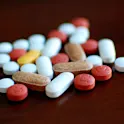
Health
18 Feb 2026
Brainwaves of mothers and children synchronize when playing together – even in an acquired language
Neural synchrony between mothers and children doesn’t require native language proficiency

Health
18 Feb 2026
Neural synchrony between mothers and children doesn’t require native language proficiency

Health
09 Feb 2026
A key technique of cognitive behavioral therapy for panic disorder is interoceptive exposure, where patients learn to tolerate the physical effects of panic attacks through repeated simulated exposure. Now, scientists have shown in a randomized controlled trial that brief intermittent intensive exercise is more effective at reducing the severity of panic disorder than relaxation therapy.

Health
29 Jan 2026
Guest editorial by Ric Treble and Caroline Copeland, authors of a new Frontiers in Pharmacology article that examined the impact of national and international legislation on the emergence of new psychoactive substances in England, Wales and Northern Ireland.

Health
19 Jan 2026
Researchers found exceptionally high levels of trauma among survivors of a notorious atrocity: the 1988 chemical attack on Halabja in Kurdistan.

Health
18 Dec 2025
A major review in Frontiers in Science highlights how tackling unsustainable food systems—reflected by our changing food environment—is urgent for both health and climate.

Health
16 Dec 2025
Professional female football players aren’t more likely to injure themselves during menstruation, but injuries that are sustained could be more disruptive, causing three times more days off the field

Health
15 Dec 2025
Lab studies find that a combination of THC and CBD kills ovarian cancer cells without harming healthy cells

Health
10 Dec 2025
Women who suffer from anxiety symptoms may have fewer circulatory natural killer cells, while those reporting insomnia had fewer total natural killer cells, showing that these disorders could decrease immune response

Health
01 Dec 2025
Scientists find a simple, automated way of making lung organoids, which could help find new lung disease drugs and personalize patients’ treatments

Health
18 Nov 2025
Infants of mothers with high levels of stress hormone age faster and typically have more teeth by six months of age

Health
11 Nov 2025
Vegan diet cuts carbon emissions by 46% and land use by 33%, while delivering nearly all essential nutrients

Health
10 Nov 2025
New study finds that many people with chronic fatigue syndrome experience disordered breathing which may be worsening symptoms

Health
07 Nov 2025
Over 800 million people globally have a type of diabetes, with numbers steadily rising. November 14 marks World Diabetes Day. We’re highlighting five recently published articles on aging and diabetes.

Health
30 Oct 2025
As AI—and the ethical debate surrounding it—accelerates, scientists argue that understanding consciousness is now more urgent than ever.

Health
23 Oct 2025
Children with multi-metastatic Ewing’s sarcoma face very poor survival rates — now an early trial of pazopanib shows promise for helping them live longer, healthier lives
Get the latest research updates, subscribe to our newsletter